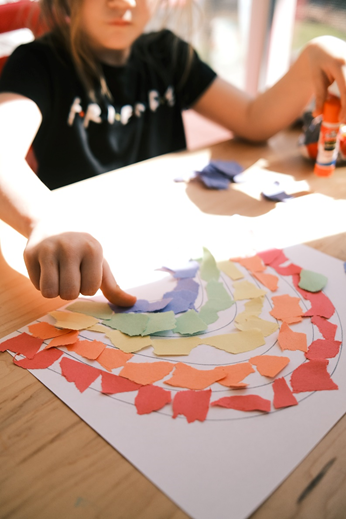No Barriers to Accessing Art: Getting Your Disabled Child Involved
Have you ever had a word on the tip of your tongue but for some reason it felt like the pathway from where the word was stored in your brain down to your lips washed away? That occasional cognitive lapse offers a glimpse of how frustrating it can be for some children who need a safe outlet for self-expression. The arts, whether it’s drawing, painting, music, crafting, or dancing, can be that outlet. They provide a host of other benefits, as well, from increased self-esteem, to improved social skills.
Participating in the arts is also enjoyable for most people. This is important for your disabled child because children learn better when they are enjoying themselves – the premise behind Learning Play. Find an art activity that your child enjoys and watch the transformation!
An artful selection
Your child may have already indicated an interest in a specific art activity, or displayed an aptitude for painting, or music. Your child’s disability may also factor into your selection. Understand the benefits of each activity, and then get your child involved by providing both opportunity and an environment conducive to enjoyment and success, such as privacy and freedom to create as much as they want.
When communicating is difficult, drawing and painting can become effective means of expression when your child’s other methods don’t seem to work. This in turn creates a satisfaction within your child that can become very calming, and make them feel better about themselves. An increase in dopamine production not only feels good, but can improve concentration.
Like drawing and painting, crafting also provides an outlet for self-expression, and can also improve motor skills. There are plentiful options, from scrapbooking, to pottery, to jewelry making. Since your crafting choices are numerous, there’s something for the entire family to get involved in, which can give your disabled child a greater sense of belonging and inclusiveness.
Music therapy comes in many forms, from singing, to playing an instrument, to writing songs, or even just listening. The disabilities and health issues that can be positively impacted through music therapy are varied, from autism to traumatic brain injury (TBI), to post-traumatic stress disorder (TBSD). Through music, children can learn to identify, accept, and then normalize and regulate their emotions. Sometimes just focusing on a calming melody has the desired effect on a confused and angry child.
Dance is a form of music therapy that particularly lends itself to self-expression, as well as offering physical benefits, such as improved motor skills, flexibility, and better coordination. It’s just an all-around beneficial physical activity that can also positively impact your child emotionally. And, while you may think that dance therapy is off-limits to the physically impaired child, think again: The National Dance Institute believes that “everyone can dance,” and offers training and programs catering to all types of physical and mental disabilities.
Getting started
If your child is currently seeing a therapist, approach them for opinions on what type of art therapy can offer your child the greatest therapeutic benefit for their disability, and then seek out a program to try. However, you don’t need to limit yourself; whatever art activity your child gravitates to and sticks with will benefit them.
If your child doesn’t do well in a group art therapy setting or class, make the sessions part of your at-home routine. You may even come to enjoy it, especially as you see the transformation in your child. If this process awakens a passion in you, remember that sometimes the best gifts are hidden! This could signal an unexpected new career change or business endeavor for you.
Teach a few lessons to other children and see how it feels. If you are still inspired and look forward to each new session, it may be time to think about formalizing your new teaching business by creating a limited liability company, or LLC, to take advantage of the liability protection it offers, along with some tax benefits while still retaining flexibility. Each state has different regulations, so check California regulations first. You can also save time by hiring a lawyer, but using an online formation service will save you that time and attorney fees.
Create self-empowerment
Learning has always been an enabler. Many of us just have to adjust our thinking to realize that how children learn isn’t as important as what they learn – or just that they learn, period. That’s why having fun while learning, as with Learning Play, is so effective. Children of all abilities associate learning with fun. That can wash away a lot of frustrations, even on the not-so-good days when words don’t come.
It’s also a wonderful way to grow up.

